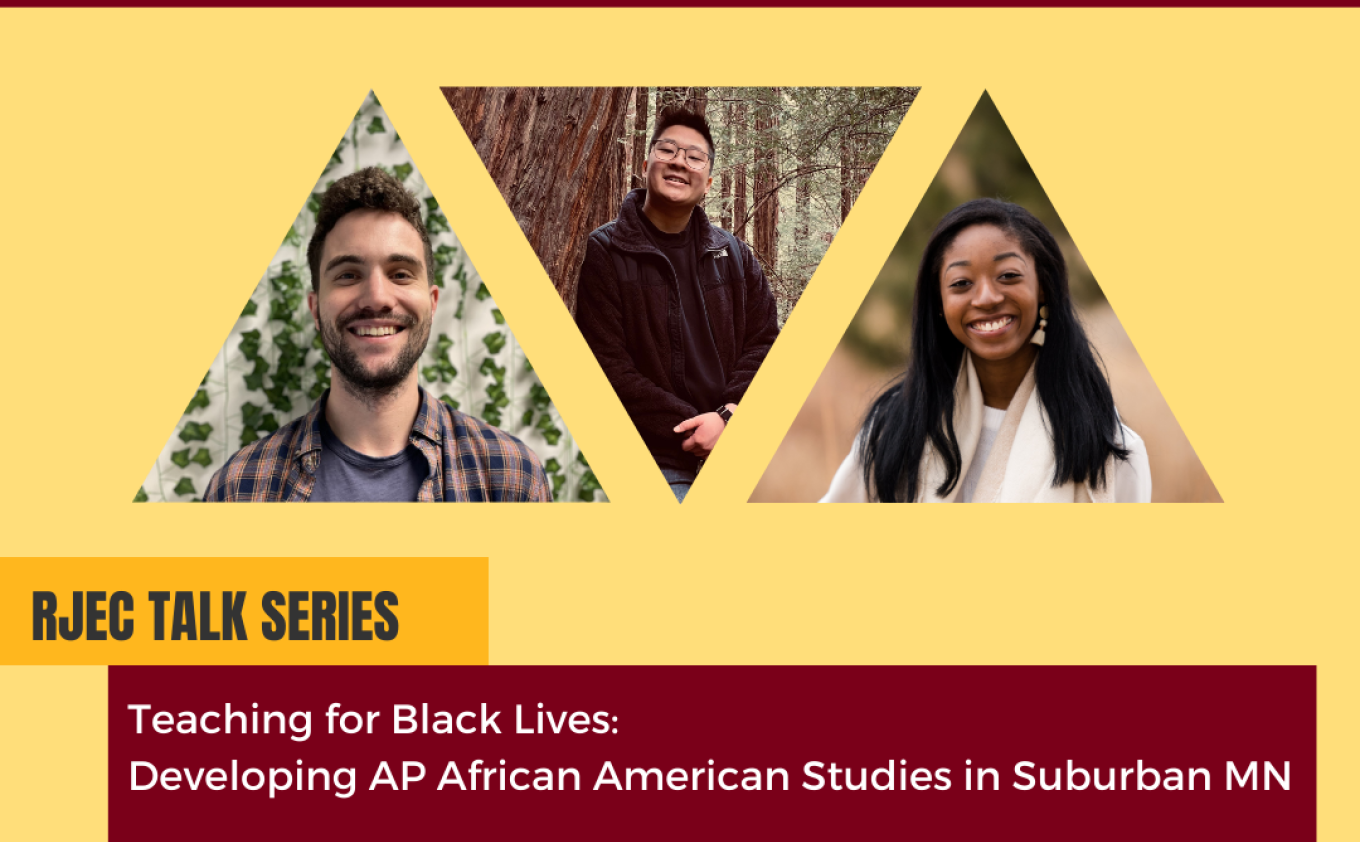Events
RJEC Talk Series: Teaching for Black Lives: Developing AP African American Studies in Suburban Minnesota

Sam Bearak (high school social studies teacher), Quynh Vu (high school social studies teacher), and their students will discuss the process of developing, teaching, and taking AP African American Studies at Eden Prairie High School. Eden Prairie’s demographics are rapidly changing. Recently, the High School’s student body exceeded 50% students of color for the first time in its history while the city remains predominantly white (74%). Bearak, Vu, and students will reflect on what these changes have meant and how they have navigated the education system to embrace Black studies and encourage high achievement.
Joy Dunna (high school social studies teacher) and her students will discuss piloting the AP African American Studies course at Edina High School. Edina values high achievement and excellence which includes the availability of a variety of AP courses being offered to students (67% of the current student body has taken an AP course). They will share experiences of how the introduction of APAAS to the school community has pushed the conversation of what a rigorous AP curriculum can look like while creating a space where students of color (who are often the minority in AP classes at Edina) can center African-American perspectives with an evidence based approach while studying American History.
In-person at Peik 155 or Online via Zoom link: https://umn-private.zoom.us/j/96636237773
Add this event to your calendar
RSVP here.
Food will be provided.
(C&I no longer provides bottled water at events)
Photographs taken at the event may be used in University of Minnesota print and online publications, promotions, or shared with the CEHD community.
The University of Minnesota shall provide equal access to and opportunity in its programs, facilities, and employment without regard to race, color, creed, religion, national origin, gender, age, marital status, familial status, disability, public assistance status, membership or activity in a local commission created for the purpose of dealing with discrimination, veteran status, sexual orientation, gender identity, or gender expression. All are welcome.
The University of Minnesota campuses were built on the traditional homelands of the Dakota and Ojibwe, and scores of other Indigenous peoples who have walked on these lands from time immemorial. It is important to acknowledge the peoples on whose land we live, learn, and work as we seek to improve and strengthen our relations with our tribal nations. We also acknowledge that words are not enough. We must ensure that our institution provides support, resources, and programs that increase access to all aspects of higher education for our American Indian students, staff, faculty, and community members.